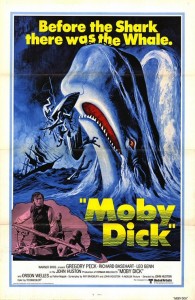Latest News
[{"id":55995,"link":"https:\/\/www.southernfriedscience.com\/deep-sea-mining-what-went-down-in-2024\/","name":"deep-sea-mining-what-went-down-in-2024","thumbnail":{"url":"https:\/\/www.southernfriedscience.com\/wp-content\/uploads\/2024\/03\/field-hires.jpg","alt":""},"title":"Deep-sea Mining: What went down in 2024?","author":{"name":"Andrew Thaler","link":"https:\/\/www.southernfriedscience.com\/author\/southern-fried-scientist\/"},"date":"Jan 13, 2025","dateGMT":"2025-01-13 20:23:03","modifiedDate":"2025-01-16 14:58:48","modifiedDateGMT":"2025-01-16 19:58:48","commentCount":"0","commentStatus":"closed","categories":{"coma":"<a href=\"https:\/\/www.southernfriedscience.com\/category\/featured\/\" rel=\"category tag\">Featured<\/a>, <a href=\"https:\/\/www.southernfriedscience.com\/category\/policy\/\" rel=\"category tag\">Policy<\/a>","space":"<a href=\"https:\/\/www.southernfriedscience.com\/category\/featured\/\" rel=\"category tag\">Featured<\/a> <a href=\"https:\/\/www.southernfriedscience.com\/category\/policy\/\" rel=\"category tag\">Policy<\/a>"},"taxonomies":{"post_tag":"<a href='https:\/\/www.southernfriedscience.com\/tag\/blake-plateau\/' rel='post_tag'>Blake Plateau<\/a><a href='https:\/\/www.southernfriedscience.com\/tag\/deep-sea-mining\/' rel='post_tag'>deep-sea mining<\/a><a href='https:\/\/www.southernfriedscience.com\/tag\/international-seabed-authority\/' rel='post_tag'>International Seabed Authority<\/a><a href='https:\/\/www.southernfriedscience.com\/tag\/norway\/' rel='post_tag'>Norway<\/a><a href='https:\/\/www.southernfriedscience.com\/tag\/solwara-i\/' rel='post_tag'>Solwara I<\/a>"},"readTime":{"min":7,"sec":4},"status":"publish","excerpt":""},{"id":55970,"link":"https:\/\/www.southernfriedscience.com\/open-source-science-hardware-for-an-open-ocean-reflecting-on-the-year-of-the-openctd\/","name":"open-source-science-hardware-for-an-open-ocean-reflecting-on-the-year-of-the-openctd","thumbnail":{"url":"https:\/\/www.southernfriedscience.com\/wp-content\/uploads\/2025\/01\/PXL_20240922_224658517-scaled.jpg","alt":""},"title":"Open-source science hardware for an Open Ocean: Reflecting on the Year of the OpenCTD","author":{"name":"Andrew Thaler","link":"https:\/\/www.southernfriedscience.com\/author\/southern-fried-scientist\/"},"date":"Jan 8, 2025","dateGMT":"2025-01-08 17:01:07","modifiedDate":"2025-01-08 15:57:26","modifiedDateGMT":"2025-01-08 20:57:26","commentCount":"0","commentStatus":"closed","categories":{"coma":"<a href=\"https:\/\/www.southernfriedscience.com\/category\/conservation\/\" rel=\"category tag\">Conservation<\/a>, <a href=\"https:\/\/www.southernfriedscience.com\/category\/education\/\" rel=\"category tag\">Education<\/a>, <a href=\"https:\/\/www.southernfriedscience.com\/category\/featured\/\" rel=\"category tag\">Featured<\/a>","space":"<a href=\"https:\/\/www.southernfriedscience.com\/category\/conservation\/\" rel=\"category tag\">Conservation<\/a> <a href=\"https:\/\/www.southernfriedscience.com\/category\/education\/\" rel=\"category tag\">Education<\/a> <a href=\"https:\/\/www.southernfriedscience.com\/category\/featured\/\" rel=\"category tag\">Featured<\/a>"},"taxonomies":{"post_tag":"<a href='https:\/\/www.southernfriedscience.com\/tag\/oceanography\/' rel='post_tag'>oceanography<\/a><a href='https:\/\/www.southernfriedscience.com\/tag\/open-source\/' rel='post_tag'>open source<\/a><a href='https:\/\/www.southernfriedscience.com\/tag\/open-source-science-hardware\/' rel='post_tag'>open-source science hardware<\/a><a href='https:\/\/www.southernfriedscience.com\/tag\/openctd\/' rel='post_tag'>OpenCTD<\/a>"},"readTime":{"min":5,"sec":30},"status":"publish","excerpt":""},{"id":55911,"link":"https:\/\/www.southernfriedscience.com\/how-the-summer-of-sharks-reshaped-our-understanding-of-us-presidential-elections\/","name":"how-the-summer-of-sharks-reshaped-our-understanding-of-us-presidential-elections","thumbnail":{"url":"https:\/\/www.southernfriedscience.com\/wp-content\/uploads\/2024\/12\/Screen_Shot_2022_07_27_at_11.56.35_AM.jpg","alt":""},"title":"How the summer of sharks reshaped our understanding of US presidential elections.","author":{"name":"Andrew Thaler","link":"https:\/\/www.southernfriedscience.com\/author\/southern-fried-scientist\/"},"date":"Jan 1, 2025","dateGMT":"2025-01-01 14:00:00","modifiedDate":"2025-01-01 10:52:39","modifiedDateGMT":"2025-01-01 15:52:39","commentCount":"0","commentStatus":"closed","categories":{"coma":"<a href=\"https:\/\/www.southernfriedscience.com\/category\/featured\/\" rel=\"category tag\">Featured<\/a>, <a href=\"https:\/\/www.southernfriedscience.com\/category\/policy\/\" rel=\"category tag\">Policy<\/a>","space":"<a href=\"https:\/\/www.southernfriedscience.com\/category\/featured\/\" rel=\"category tag\">Featured<\/a> <a href=\"https:\/\/www.southernfriedscience.com\/category\/policy\/\" rel=\"category tag\">Policy<\/a>"},"taxonomies":{"post_tag":"<a href='https:\/\/www.southernfriedscience.com\/tag\/2024-election\/' rel='post_tag'>2024 Election<\/a><a href='https:\/\/www.southernfriedscience.com\/tag\/biden\/' rel='post_tag'>Biden<\/a><a href='https:\/\/www.southernfriedscience.com\/tag\/climate-change\/' rel='post_tag'>climate change<\/a><a href='https:\/\/www.southernfriedscience.com\/tag\/sharks\/' rel='post_tag'>sharks<\/a><a href='https:\/\/www.southernfriedscience.com\/tag\/sharks-in-popular-culture\/' rel='post_tag'>sharks in popular culture<\/a><a href='https:\/\/www.southernfriedscience.com\/tag\/trump\/' rel='post_tag'>Trump<\/a>"},"readTime":{"min":6,"sec":47},"status":"publish","excerpt":""},{"id":55928,"link":"https:\/\/www.southernfriedscience.com\/the-wrongest-belief-about-the-deep-sea-is-wronger-than-you-know\/","name":"the-wrongest-belief-about-the-deep-sea-is-wronger-than-you-know","thumbnail":{"url":"https:\/\/www.southernfriedscience.com\/wp-content\/uploads\/2024\/12\/3.jpg","alt":""},"title":"The wrongest belief about the deep sea is wronger than you know","author":{"name":"David Shiffman","link":"https:\/\/www.southernfriedscience.com\/author\/whysharksmatter\/"},"date":"Jan 1, 2025","dateGMT":"2025-01-01 14:00:06","modifiedDate":"2024-12-31 11:08:17","modifiedDateGMT":"2024-12-31 16:08:17","commentCount":"0","commentStatus":"closed","categories":{"coma":"<a href=\"https:\/\/www.southernfriedscience.com\/category\/blogging\/\" rel=\"category tag\">Blogging<\/a>, <a href=\"https:\/\/www.southernfriedscience.com\/category\/conservation\/\" rel=\"category tag\">Conservation<\/a>, <a href=\"https:\/\/www.southernfriedscience.com\/category\/exploration\/\" rel=\"category tag\">Exploration<\/a>, <a href=\"https:\/\/www.southernfriedscience.com\/category\/featured\/\" rel=\"category tag\">Featured<\/a>, <a href=\"https:\/\/www.southernfriedscience.com\/category\/science\/\" rel=\"category tag\">Science<\/a>","space":"<a href=\"https:\/\/www.southernfriedscience.com\/category\/blogging\/\" rel=\"category tag\">Blogging<\/a> <a href=\"https:\/\/www.southernfriedscience.com\/category\/conservation\/\" rel=\"category tag\">Conservation<\/a> <a href=\"https:\/\/www.southernfriedscience.com\/category\/exploration\/\" rel=\"category tag\">Exploration<\/a> <a href=\"https:\/\/www.southernfriedscience.com\/category\/featured\/\" rel=\"category tag\">Featured<\/a> <a href=\"https:\/\/www.southernfriedscience.com\/category\/science\/\" rel=\"category tag\">Science<\/a>"},"taxonomies":{"post_tag":"<a href='https:\/\/www.southernfriedscience.com\/tag\/azoic-hypothesis\/' rel='post_tag'>azoic hypothesis<\/a><a href='https:\/\/www.southernfriedscience.com\/tag\/deep-sea\/' rel='post_tag'>deep sea<\/a><a href='https:\/\/www.southernfriedscience.com\/tag\/deep-sea-biodiversity\/' rel='post_tag'>deep sea biodiversity<\/a><a href='https:\/\/www.southernfriedscience.com\/tag\/deep-sea-mining\/' rel='post_tag'>deep-sea mining<\/a><a href='https:\/\/www.southernfriedscience.com\/tag\/edward-forbes\/' rel='post_tag'>edward forbes<\/a>"},"readTime":{"min":3,"sec":51},"status":"publish","excerpt":""},{"id":55894,"link":"https:\/\/www.southernfriedscience.com\/twas-brillig-building-a-dungeons-dragons-campaign-for-adventurers-in-and-out-of-the-classroom\/","name":"twas-brillig-building-a-dungeons-dragons-campaign-for-adventurers-in-and-out-of-the-classroom","thumbnail":{"url":"https:\/\/www.southernfriedscience.com\/wp-content\/uploads\/2024\/12\/Act-2-1.png","alt":""},"title":"'Twas brillig... building a Dungeons & Dragons campaign for adventurers in and out of the classroom.","author":{"name":"Andrew Thaler","link":"https:\/\/www.southernfriedscience.com\/author\/southern-fried-scientist\/"},"date":"Dec 17, 2024","dateGMT":"2024-12-18 02:25:59","modifiedDate":"2024-12-17 21:28:33","modifiedDateGMT":"2024-12-18 02:28:33","commentCount":"0","commentStatus":"closed","categories":{"coma":"<a href=\"https:\/\/www.southernfriedscience.com\/category\/education\/\" rel=\"category tag\">Education<\/a>, <a href=\"https:\/\/www.southernfriedscience.com\/category\/featured\/\" rel=\"category tag\">Featured<\/a>","space":"<a href=\"https:\/\/www.southernfriedscience.com\/category\/education\/\" rel=\"category tag\">Education<\/a> <a href=\"https:\/\/www.southernfriedscience.com\/category\/featured\/\" rel=\"category tag\">Featured<\/a>"},"taxonomies":{"post_tag":"<a href='https:\/\/www.southernfriedscience.com\/tag\/classroom\/' rel='post_tag'>classroom<\/a><a href='https:\/\/www.southernfriedscience.com\/tag\/dungeons-and-dragons\/' rel='post_tag'>Dungeons and dragons<\/a><a href='https:\/\/www.southernfriedscience.com\/tag\/experiential-education\/' rel='post_tag'>experiential education<\/a><a href='https:\/\/www.southernfriedscience.com\/tag\/jabberwock\/' rel='post_tag'>Jabberwock<\/a><a href='https:\/\/www.southernfriedscience.com\/tag\/succession\/' rel='post_tag'>succession<\/a>"},"readTime":{"min":6,"sec":35},"status":"publish","excerpt":""},{"id":55883,"link":"https:\/\/www.southernfriedscience.com\/hunt-the-jabberwock-defend-the-warren-save-the-forest-a-dd-5e-adventure-for-environmental-educators\/","name":"hunt-the-jabberwock-defend-the-warren-save-the-forest-a-dd-5e-adventure-for-environmental-educators","thumbnail":{"url":"https:\/\/www.southernfriedscience.com\/wp-content\/uploads\/2024\/12\/Page-1.png","alt":""},"title":"Hunt the Jabberwock, Defend the Warren, Save the Forest: a D&D 5e Adventure for Environmental Educators","author":{"name":"Andrew Thaler","link":"https:\/\/www.southernfriedscience.com\/author\/southern-fried-scientist\/"},"date":"Dec 13, 2024","dateGMT":"2024-12-13 20:38:02","modifiedDate":"2024-12-17 15:35:52","modifiedDateGMT":"2024-12-17 20:35:52","commentCount":"0","commentStatus":"open","categories":{"coma":"<a href=\"https:\/\/www.southernfriedscience.com\/category\/education\/\" rel=\"category tag\">Education<\/a>, <a href=\"https:\/\/www.southernfriedscience.com\/category\/featured\/\" rel=\"category tag\">Featured<\/a>","space":"<a href=\"https:\/\/www.southernfriedscience.com\/category\/education\/\" rel=\"category tag\">Education<\/a> <a href=\"https:\/\/www.southernfriedscience.com\/category\/featured\/\" rel=\"category tag\">Featured<\/a>"},"taxonomies":{"post_tag":"<a href='https:\/\/www.southernfriedscience.com\/tag\/dams\/' rel='post_tag'>dams<\/a><a href='https:\/\/www.southernfriedscience.com\/tag\/dungeons-and-dragons\/' rel='post_tag'>Dungeons and dragons<\/a><a href='https:\/\/www.southernfriedscience.com\/tag\/ecology\/' rel='post_tag'>ecology<\/a><a href='https:\/\/www.southernfriedscience.com\/tag\/forest\/' rel='post_tag'>forest<\/a><a href='https:\/\/www.southernfriedscience.com\/tag\/jabberwock\/' rel='post_tag'>Jabberwock<\/a><a href='https:\/\/www.southernfriedscience.com\/tag\/lesson-plans\/' rel='post_tag'>Lesson PLans<\/a>"},"readTime":{"min":1,"sec":41},"status":"publish","excerpt":""}]

 Thanks to everyone who’s followed along with us on our journey through the maritime classic – Moby Dick. I hope the pace is not too slow or too fast for anyone.
Thanks to everyone who’s followed along with us on our journey through the maritime classic – Moby Dick. I hope the pace is not too slow or too fast for anyone.